Welsh cakes are little sweet discs, similar in ingredients and flavour to scones, except quicker and simpler to make.
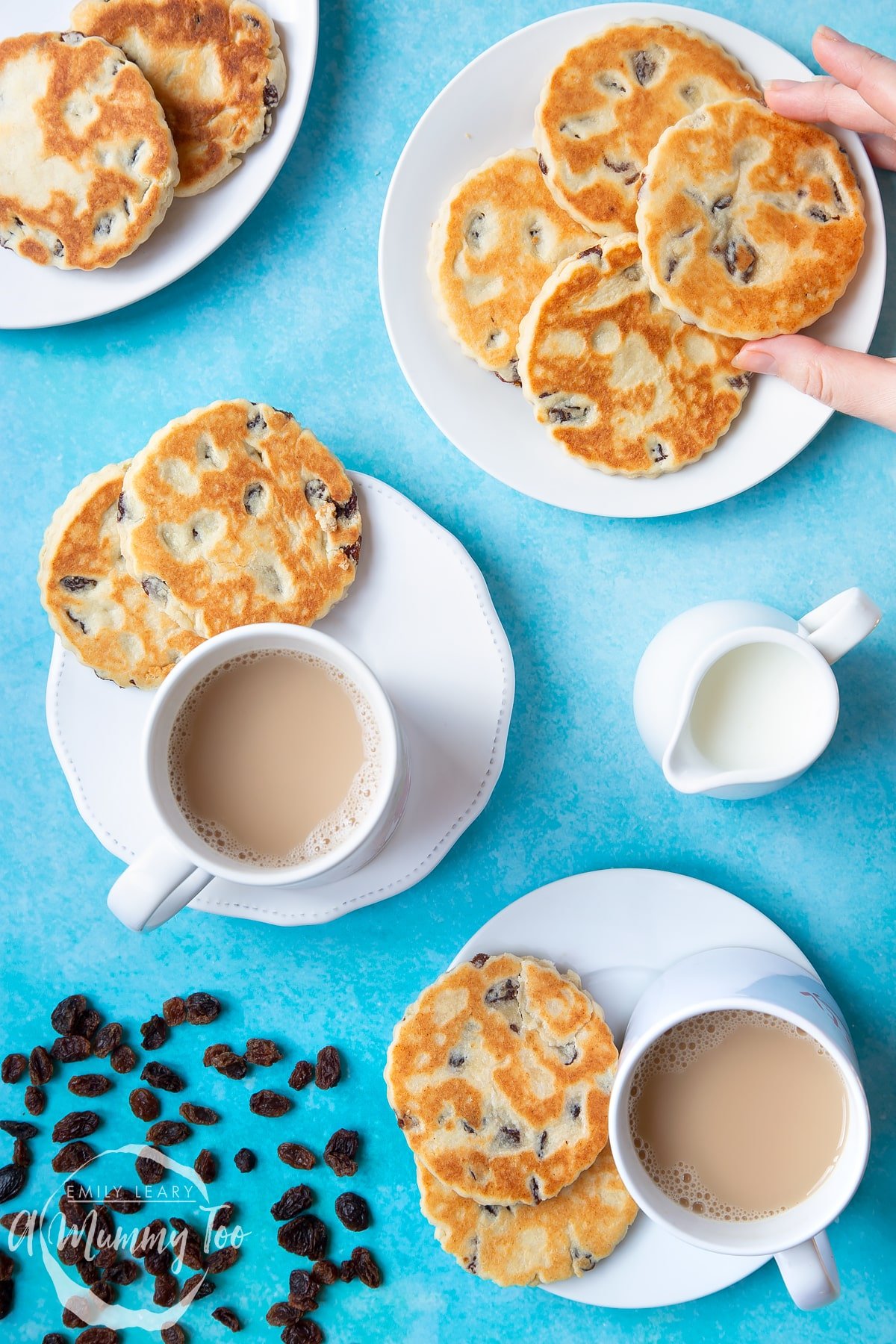
The dough is a combination of flour, butter, eggs and sugar, studded with sultanas and rolled flat. It is then cut into rounds and cooked in a dry hot pan.
As soon as you taste a Welsh Cake, you'll immediately know what all the fuss is about.
A year ago, I'd never tried Welsh cakes - I'd never even heard of Welsh cakes. That is until a conversation on Twitter caught my eye and led to making these easy, delicious treats. They're good. Really good.
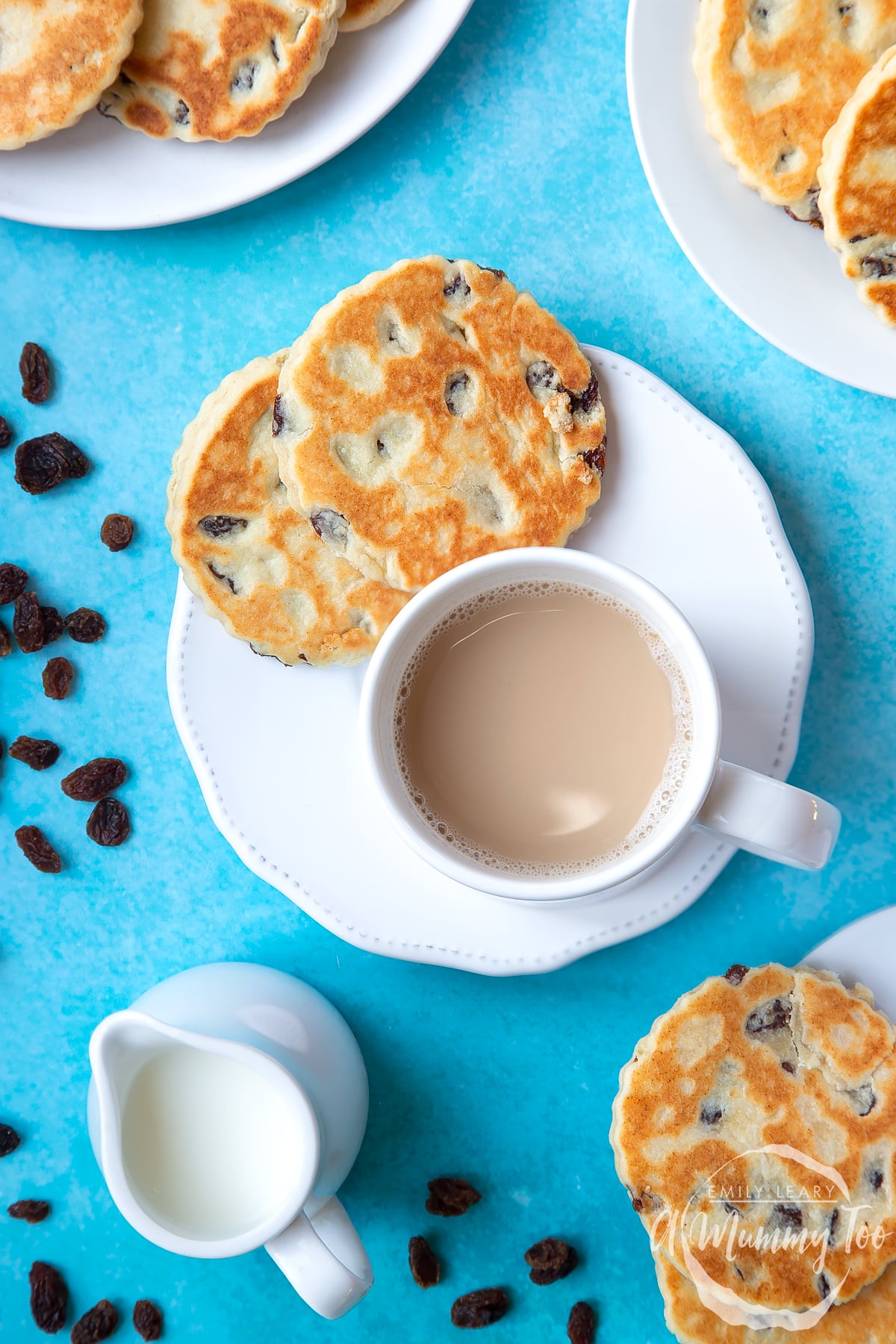
Now, the first time I made Welsh cakes, I wanted to be sure we were making them just right and the traditional way.
So, I called upon the assistance of my lovely friend, Rachael Phillips, who had told me about them in the first place, and she sent me this authentic recipe.
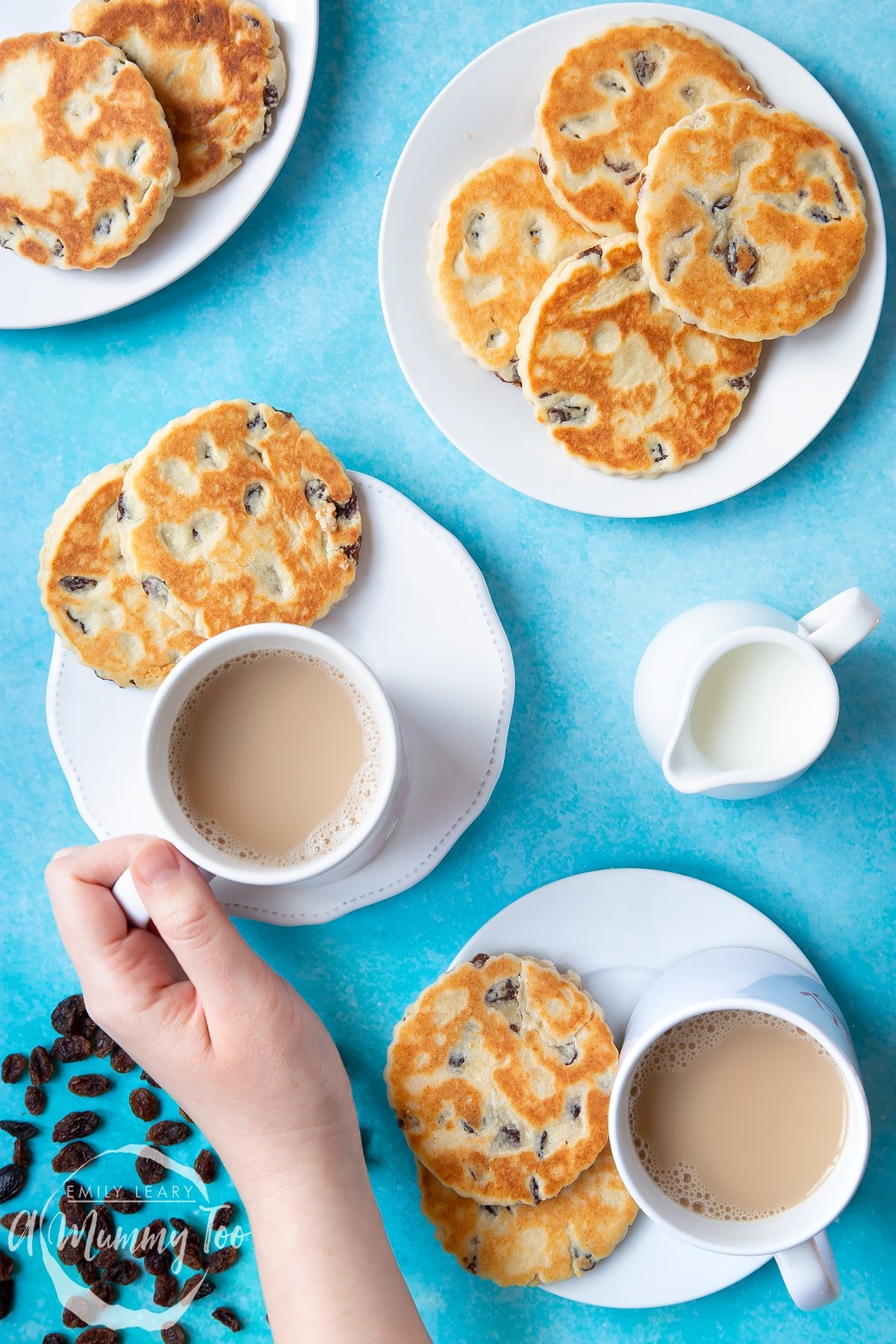
It's perfect, producing sweet, light, ever so slightly crumbly, scone-like flat cakes.
Here's how to make 18-20 today...
Ingredients
- 225 g (1½ cups + 1 tbsp) self-raising white flour (self rising flour)
- 110 g (1 stick) salted butter cubed
- 85 g (½ cup) white caster sugar (superfine sugar)
- 1 medium free range egg
- Few drops whole milk if needed
- 55 g (⅓ cup) sultanas
Instructions
Put the flour and butter in a large bowl.
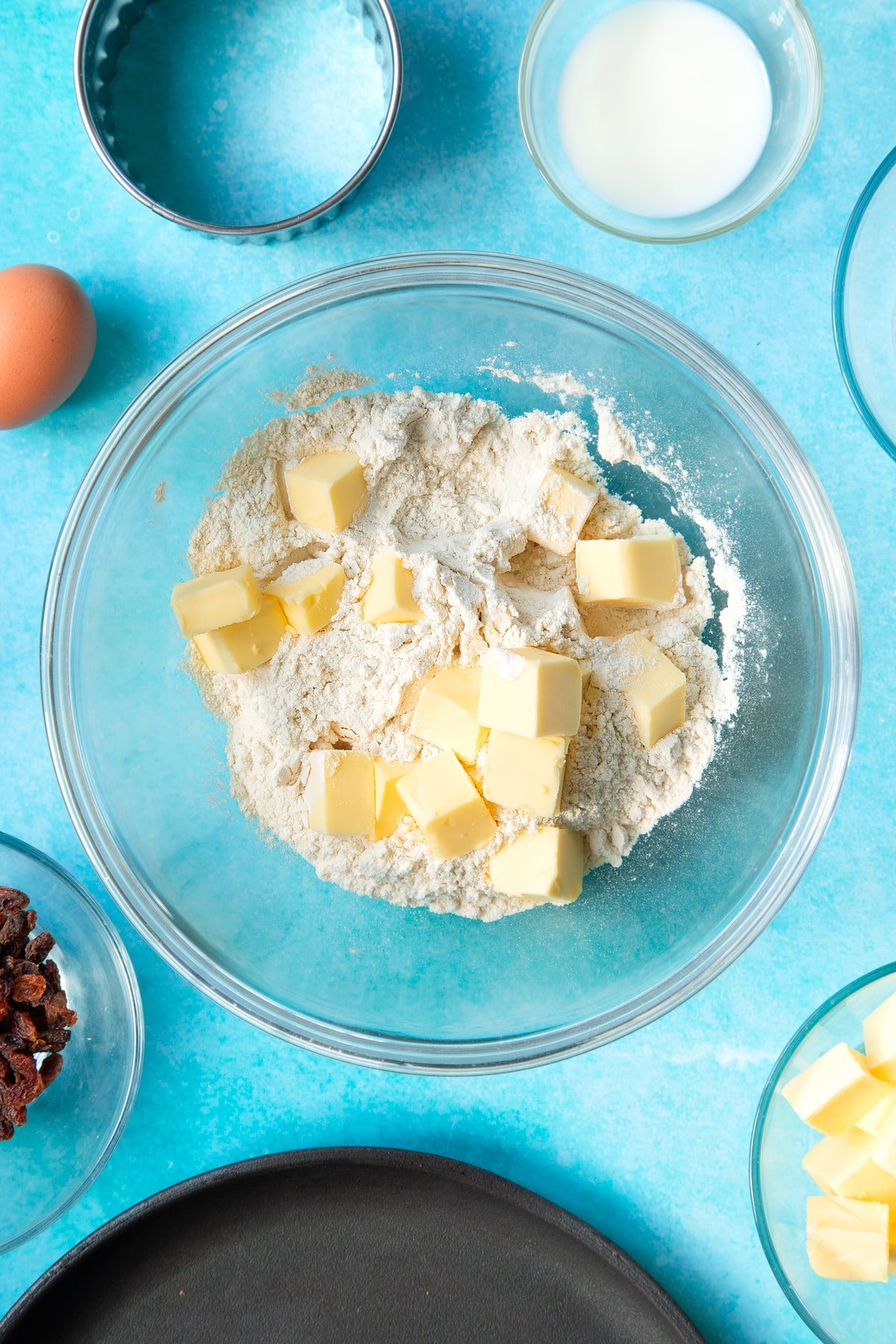
Rub them together until the texture is like breadcrumbs.
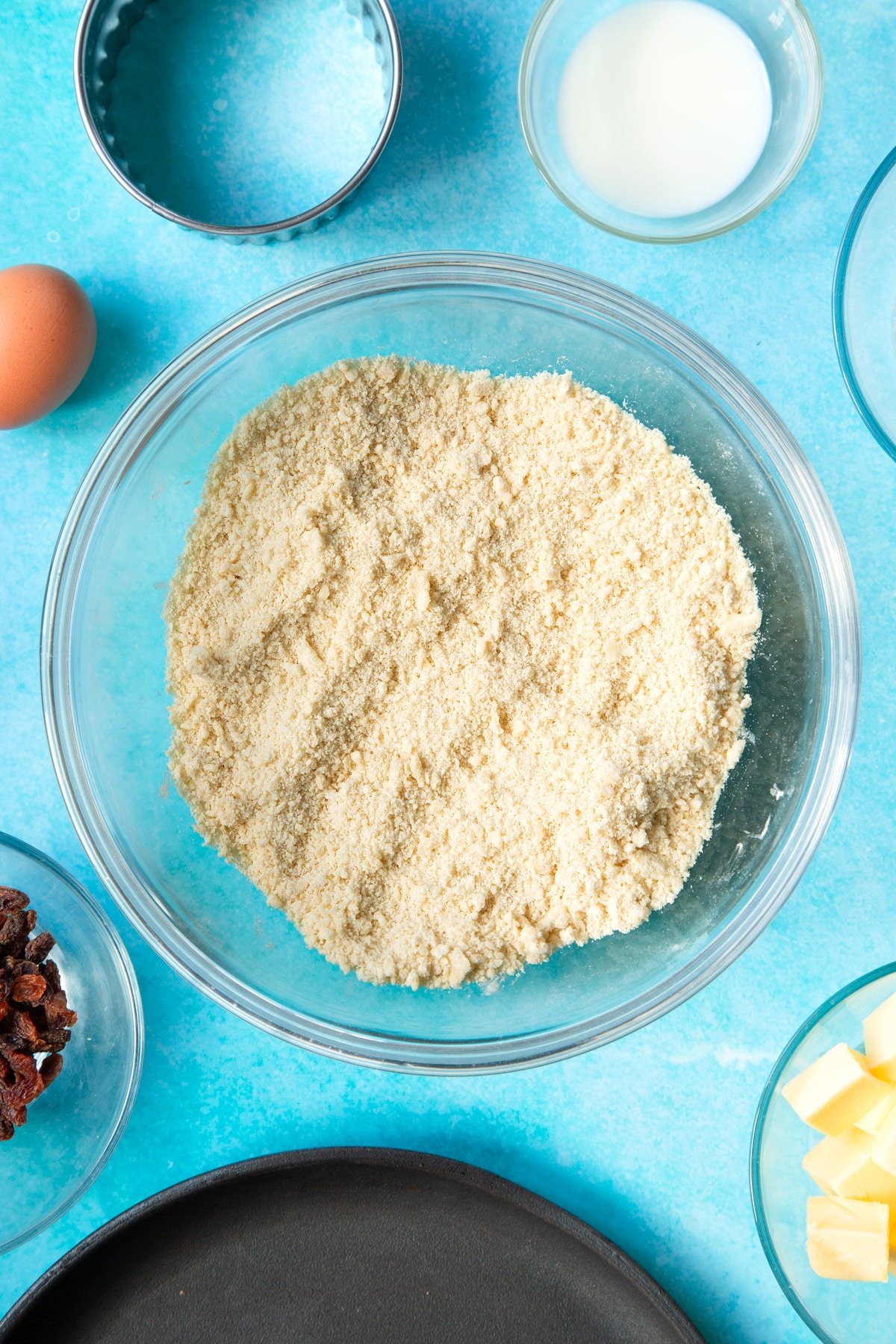
Add the sugar and egg together.
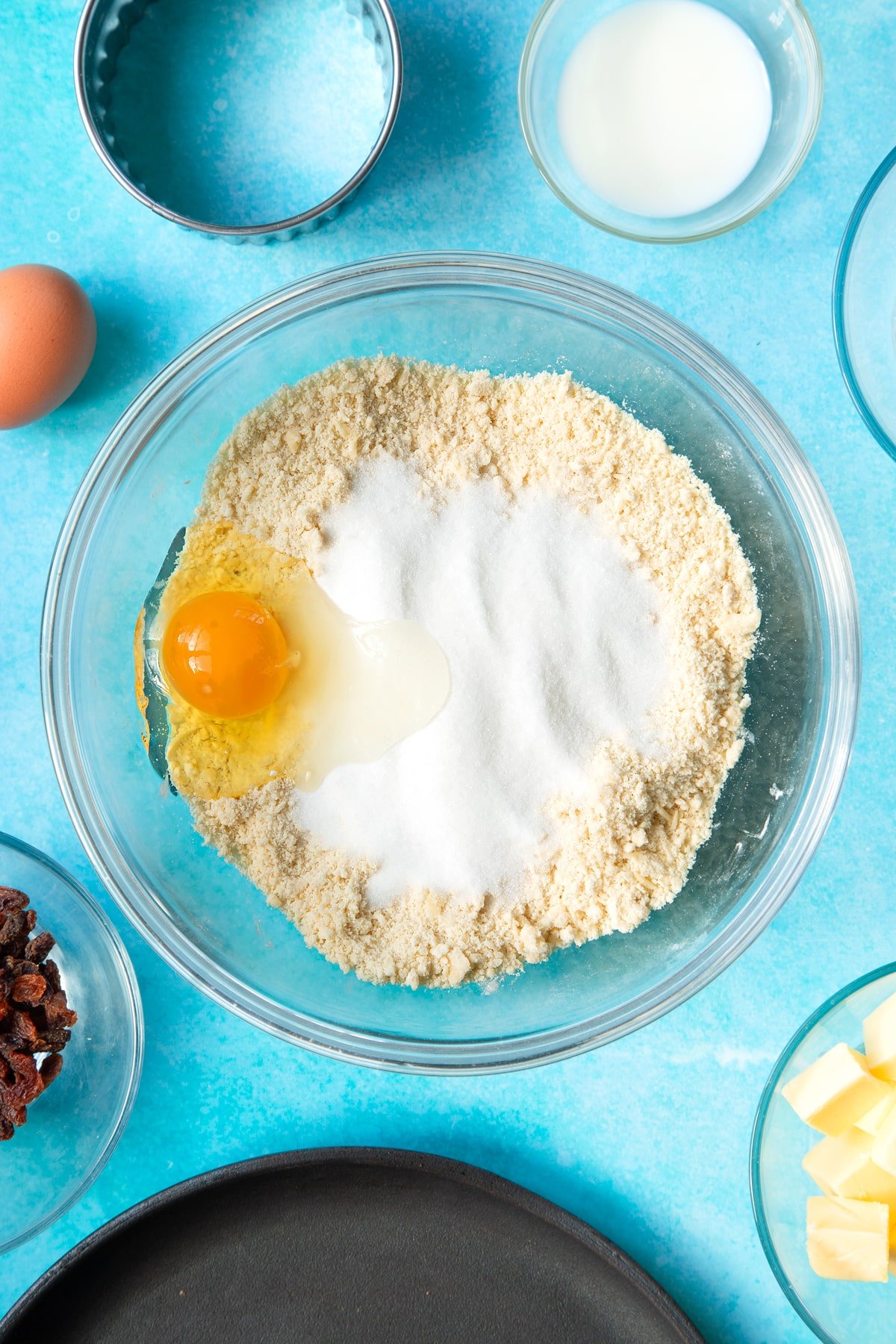
Mix in with a fork. If you find it’s a bit dry then add a drop or two of milk.
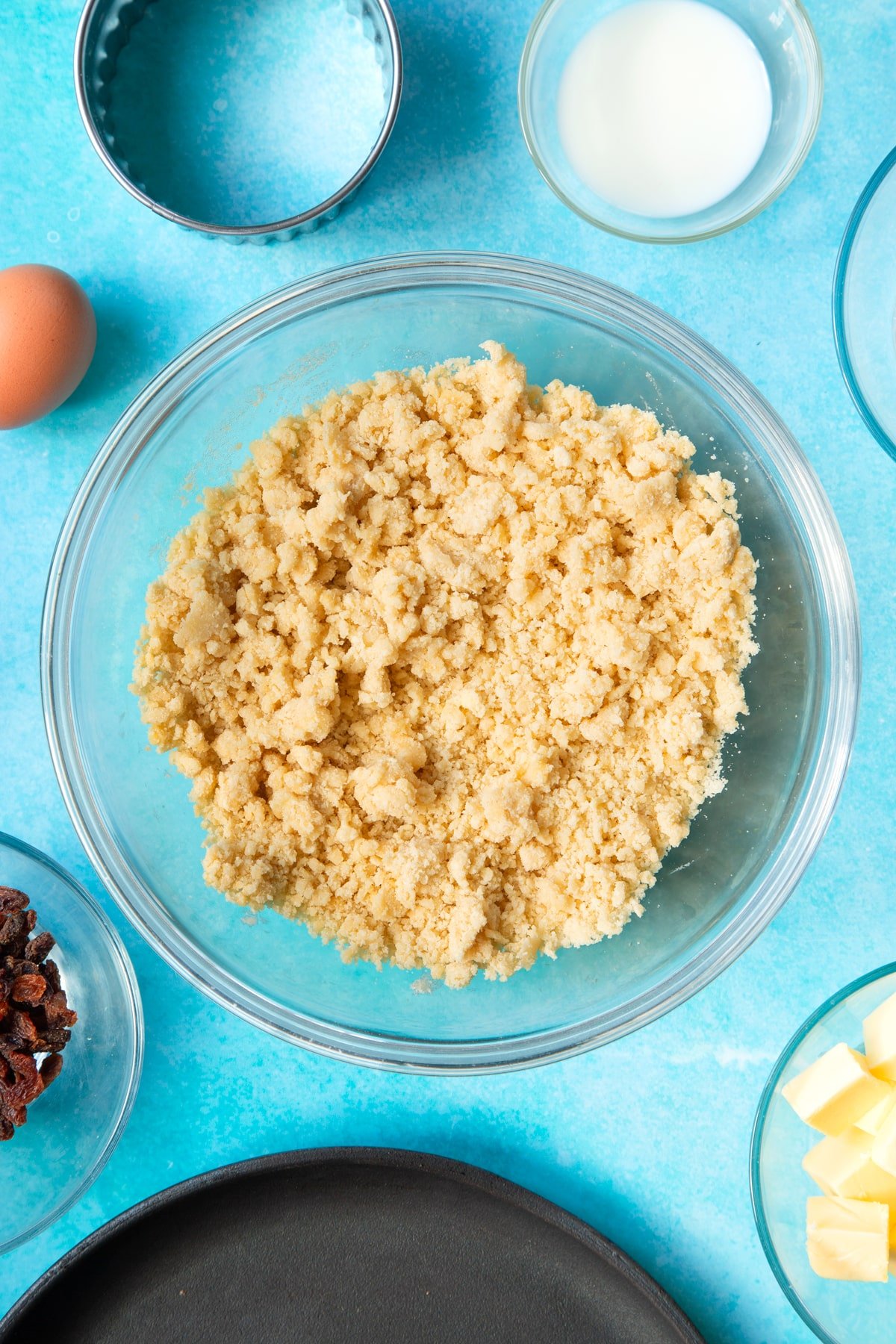
Add in the sultanas.
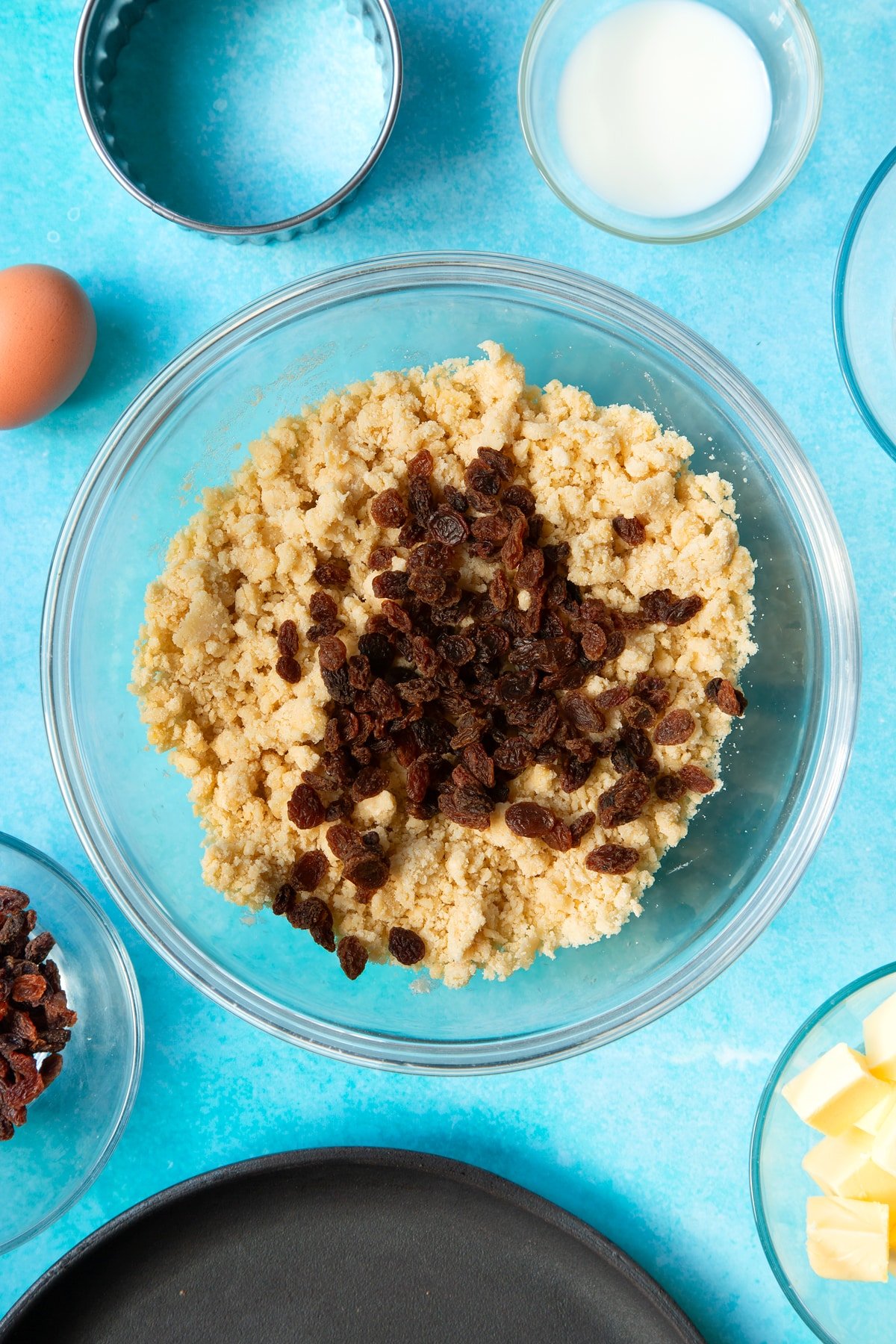
Stir.
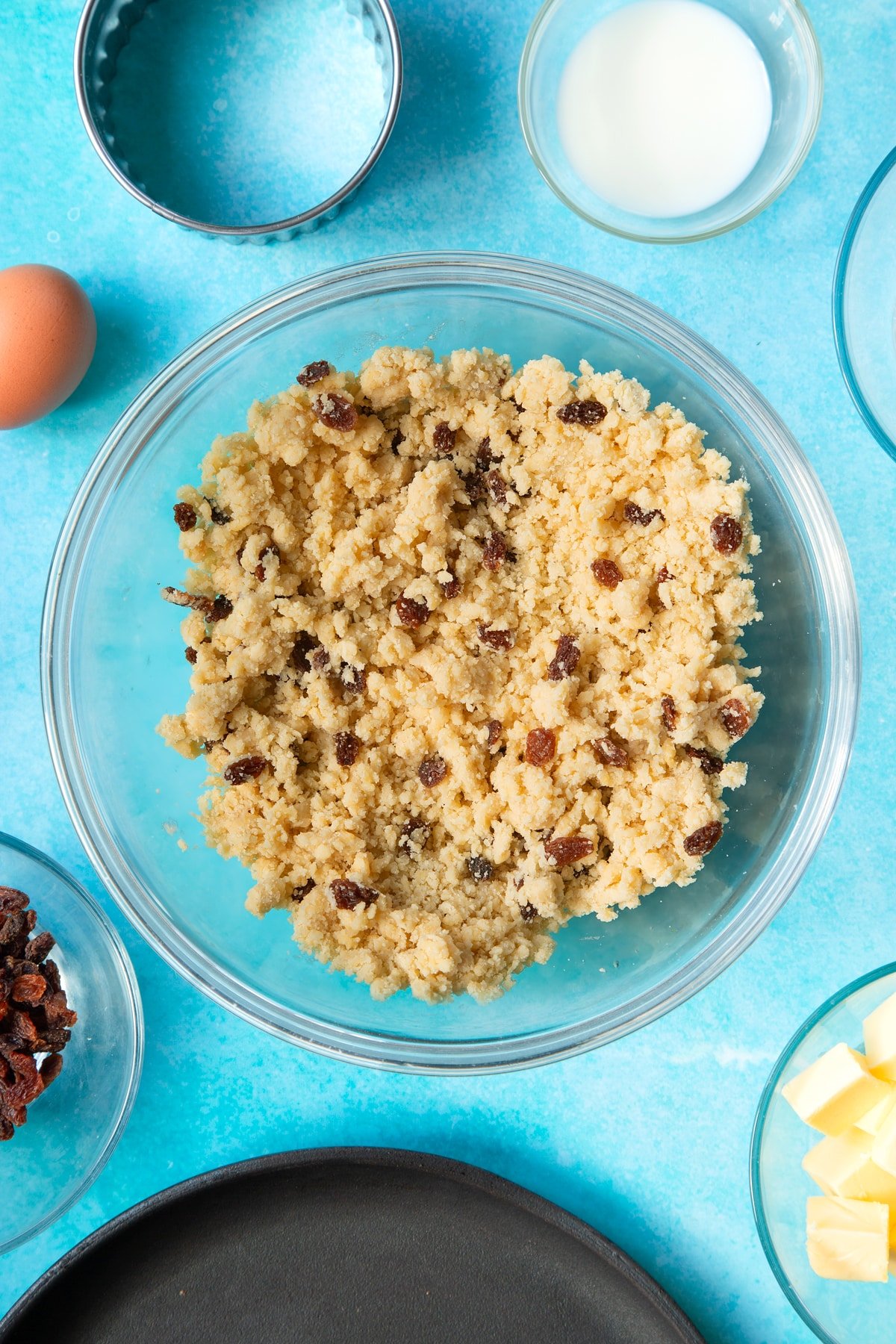
Bring together into a dough.
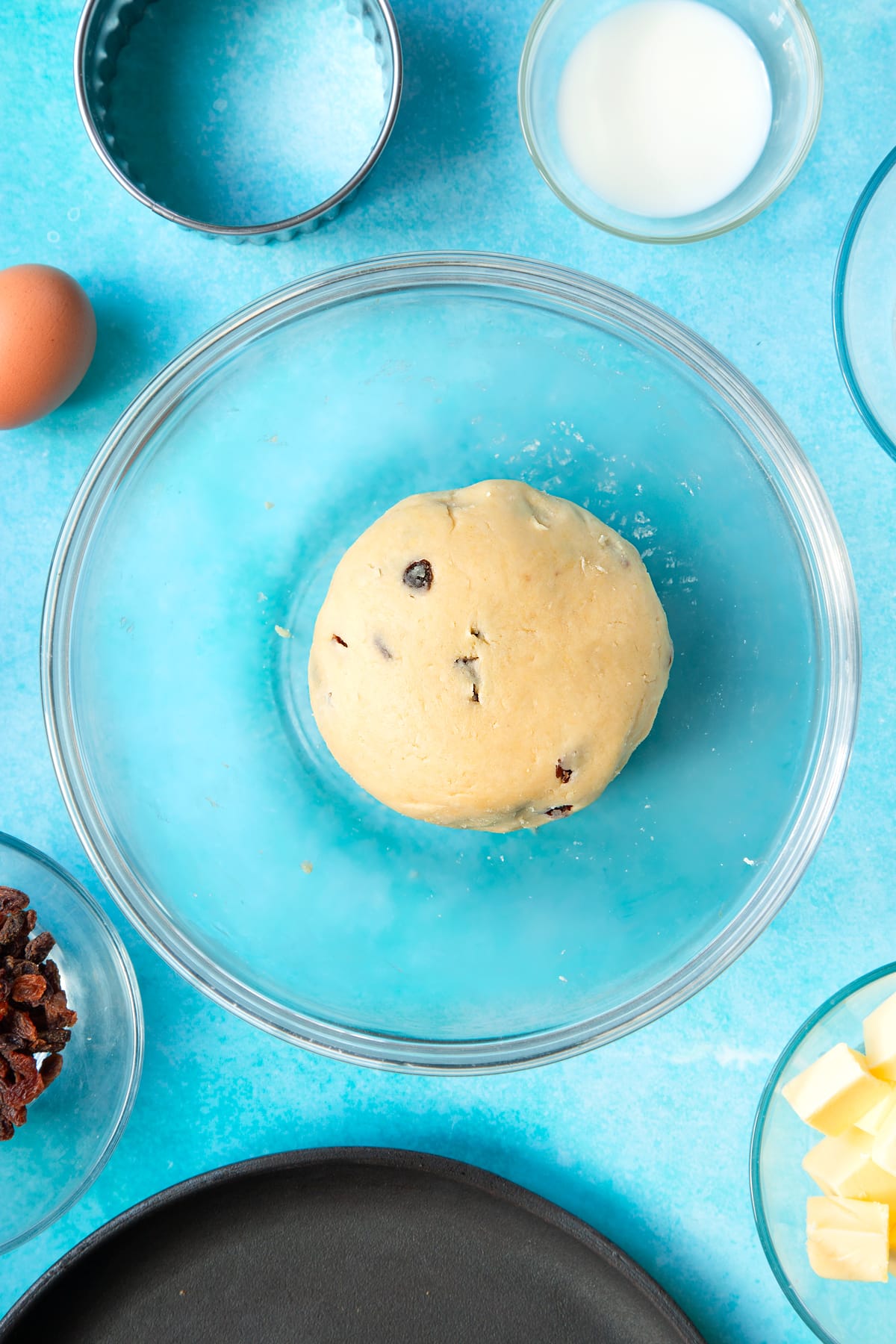
Turn out on to a floury surface.
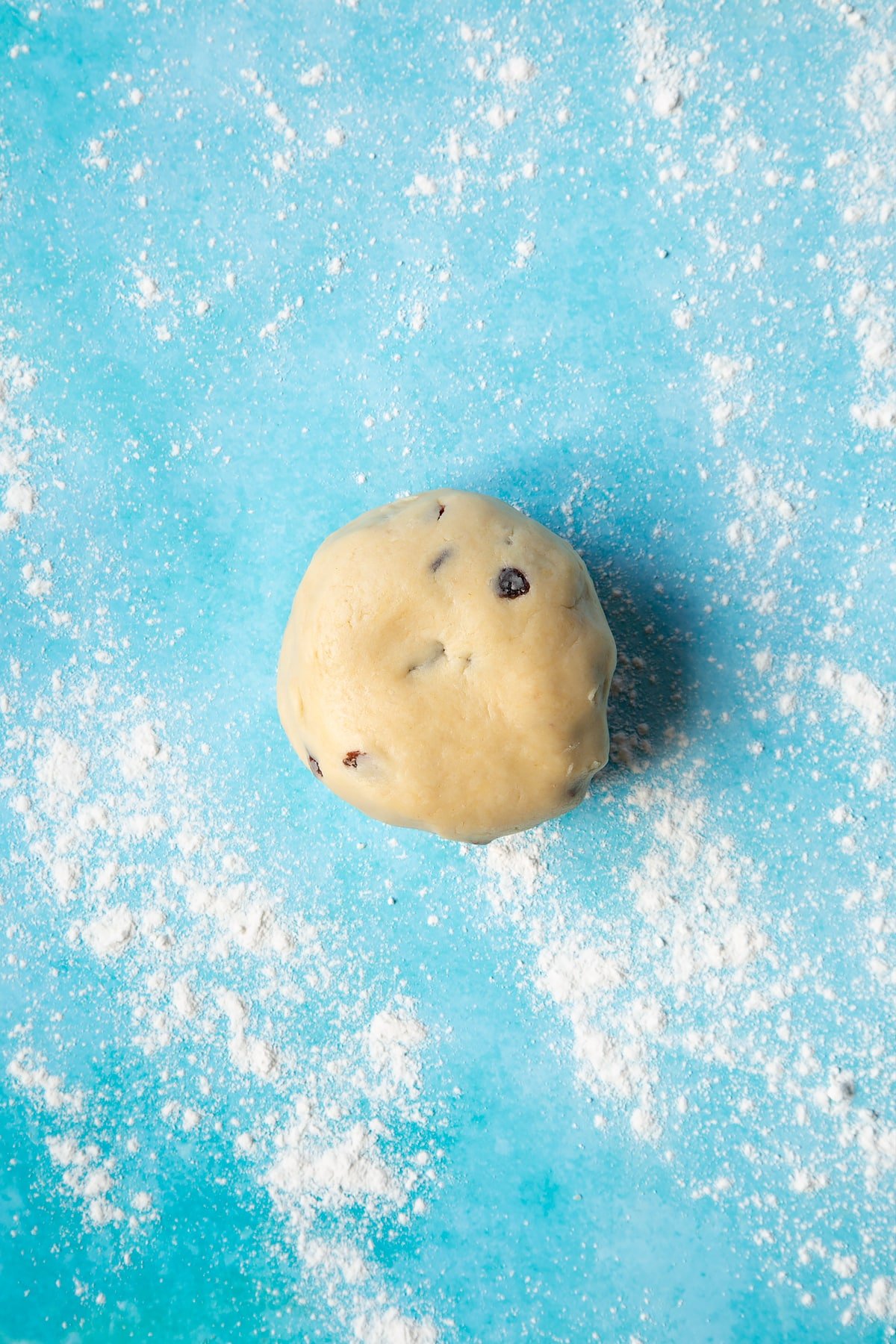
Roll out to about 5mm thick.
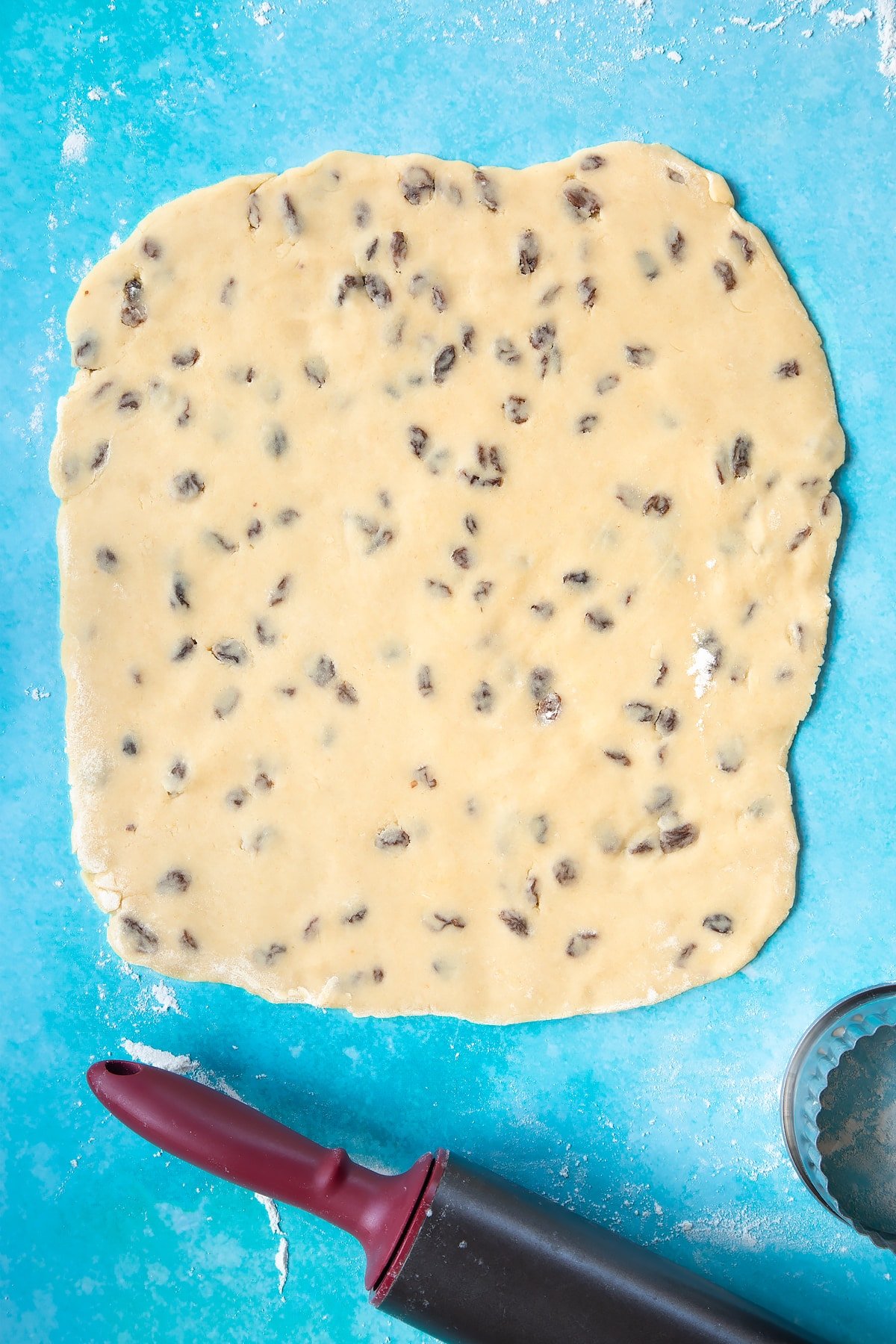
Cut out circles using a cookie cutter - the dough should be really easy to work with.
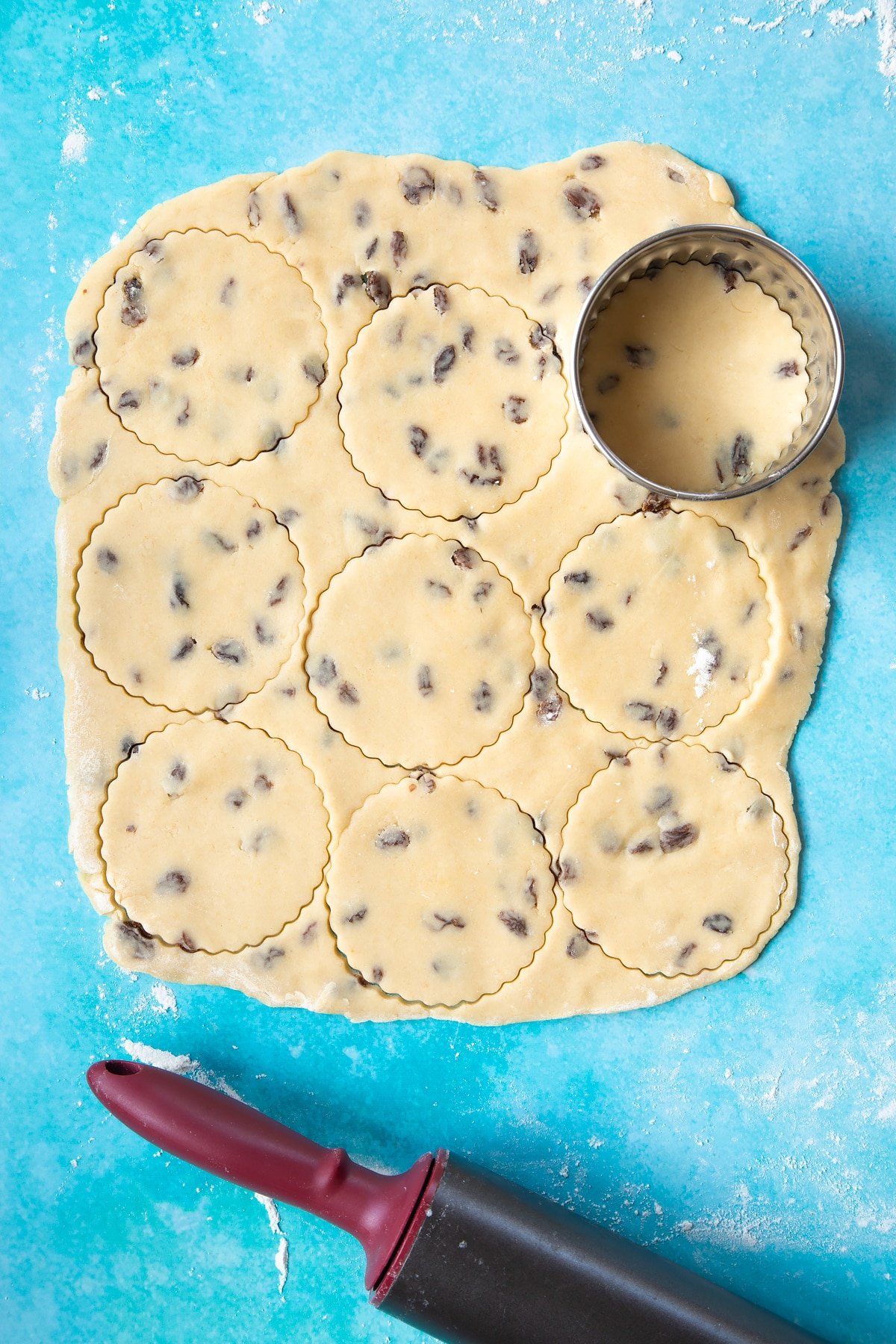
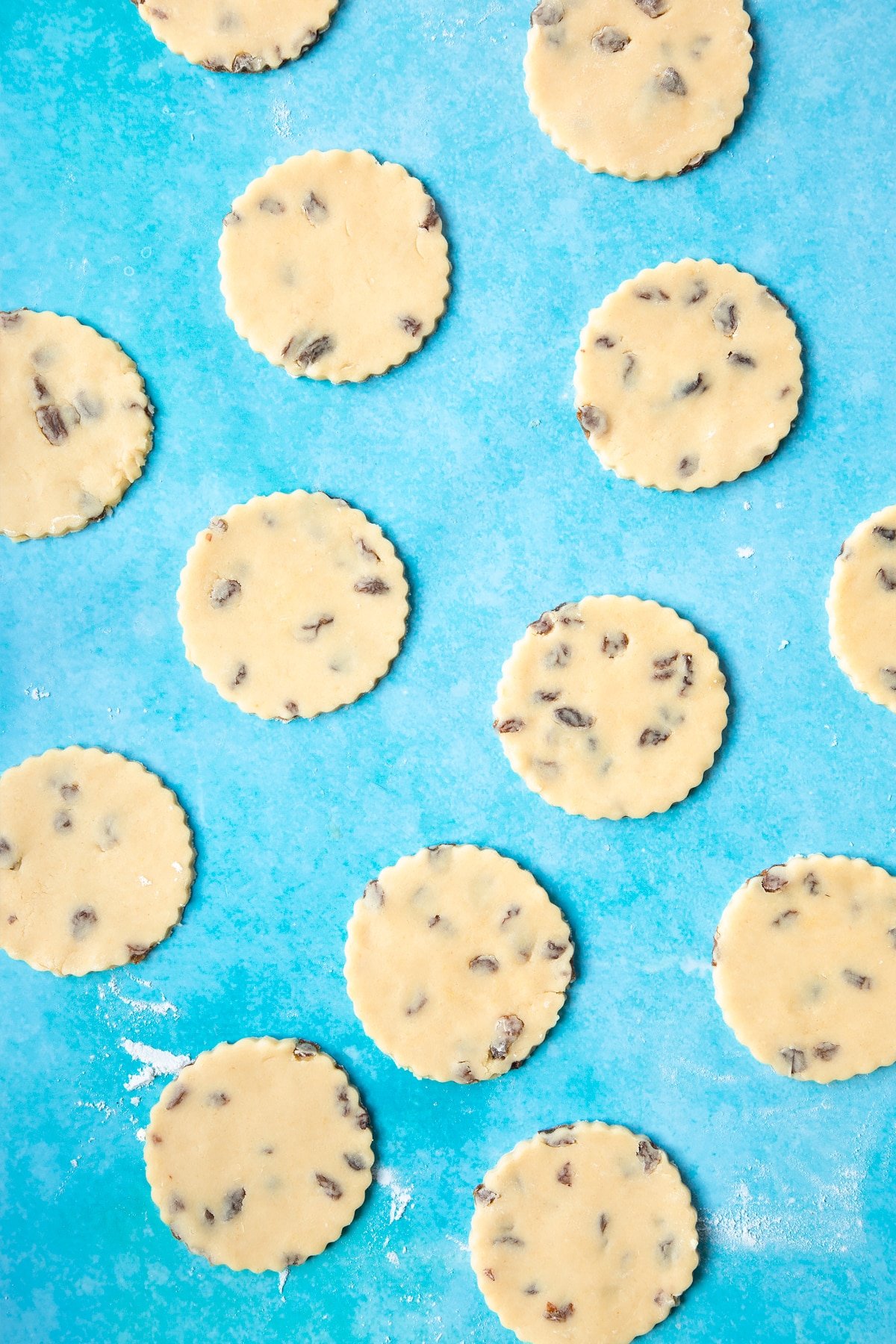
Warm a frying pan over a medium heat.
Cook for about 3 minutes on each side.
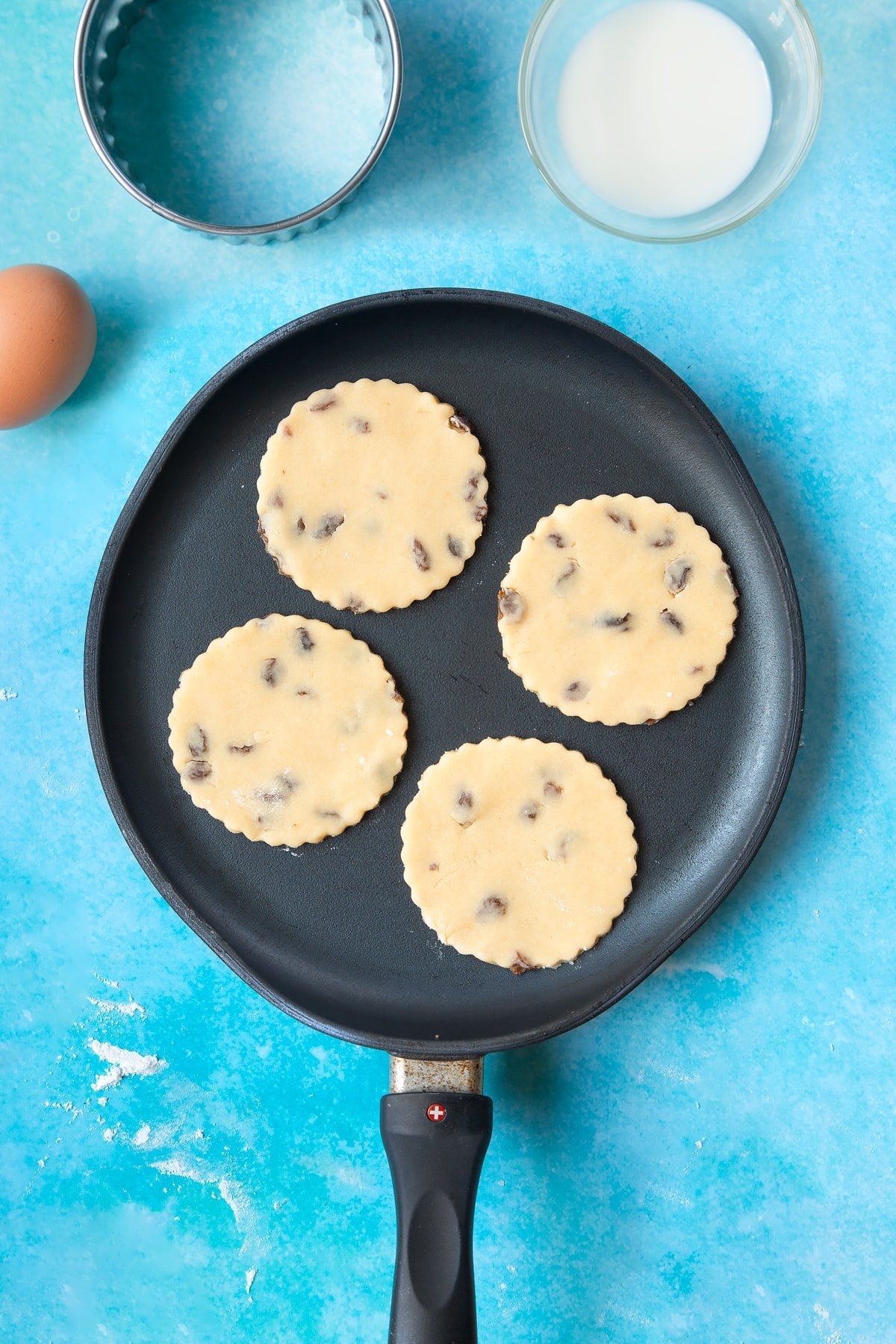
They need to be golden brown.
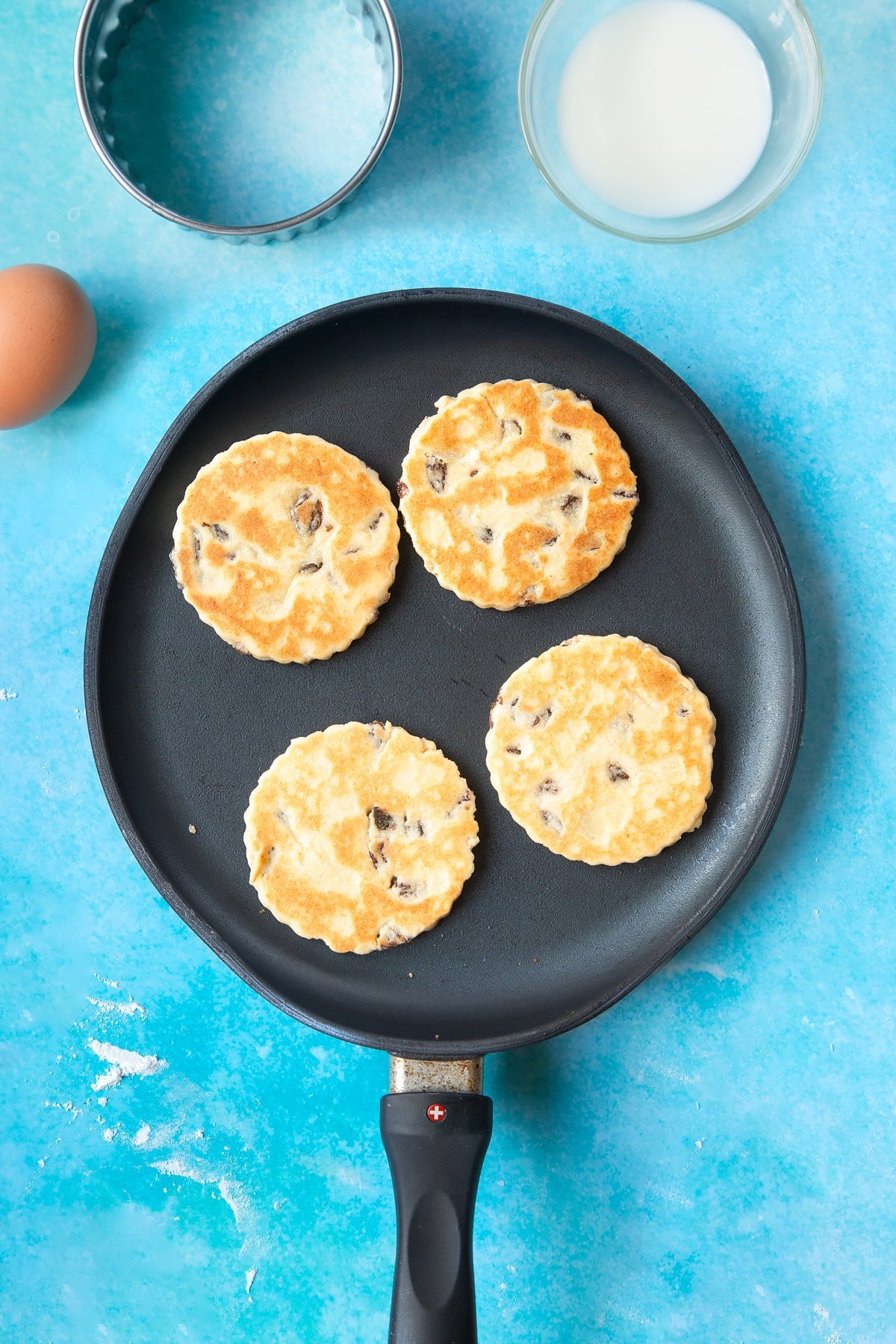
Tip: it can be tricky to keep the heat consistent using a frying pan, so keep an eye on the pan between batches to make sure it doesn't get too hot.
And that's it, you'll have a batch of Welsh cakes perfect for enjoying with tea, popping in lunchboxes, or just scoffing as a sneaky evening treat.
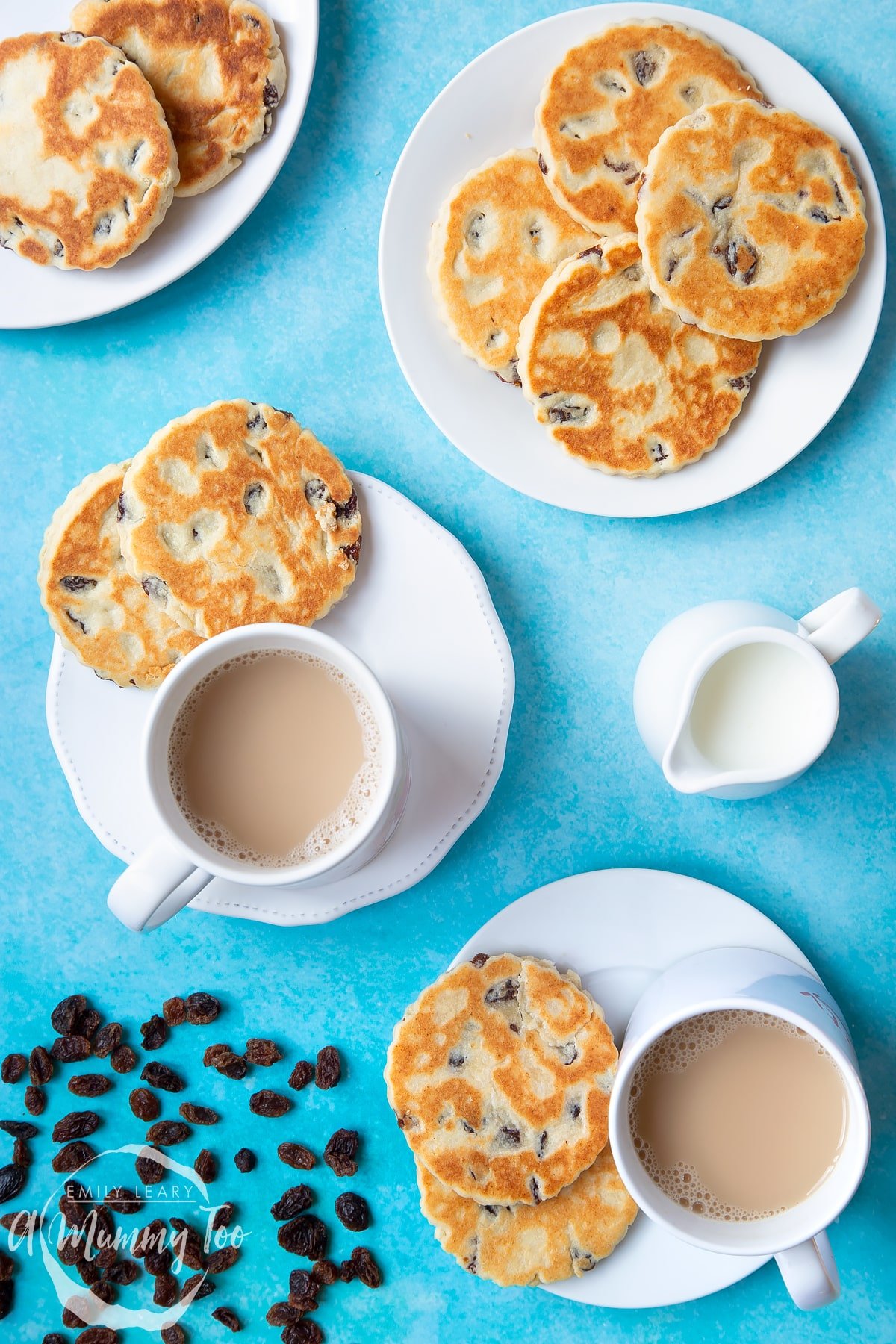
Thanks again, Rachael!
Pointers, tricks and troubleshooting tips for the perfect Welsh cakes
Are Welsh cakes easy to make?
Yes, this is a really simple recipe, giving you Welsh cakes that hover somewhere between a scone and a pancake in a matter of minutes.
The only slightly challenging bit is dry frying the cakes: you need to watch the heat under the pan carefully, as the pan can easily overheat and scorch the cakes.
Will I need any special equipment to make Welsh cakes?
No, you won't need any special kit to make Welsh cakes, just weighing scales, a bowl, a fork, a rolling pin, a spatula, a frying pan and a cookie cutter.
I haven’t got a cookie cutter, what else can I use?
If you do not have a cookie cutter, you could use a jar, glass or small bowl as a guide, and cut around it with a sharp knife.
What sort of frying pan is best to use?
A nonstick pan with a heavy base is best for making Welsh cakes as it should diffuse the heat well and make it as easy as possible to dry fry the cakes evenly and consistently.
What can I use instead of sultanas?
Raisins or currants are obvious replacements for sultanas: if you have time, soak them in warm water for half an hour to plump them up before using.
Dried cranberries or dried cherries, while not very traditional, could also be delicious.
Are Welsh cakes recipe suitable for vegetarians?
Yes, Welsh Cakes are suitable for vegetarians, as they contain no meat, poultry or fish.
Are Welsh cakes suitable for vegans?
No, these Welsh cakes are not suitable for vegans as they contain eggs, butter and milk.
If you'd like to try making a dairy-free and egg-free version, try my recipe for vegan Welsh cakes.
Is this Welsh cakes recipe gluten-free?
This recipe uses wheat flour, so is not suitable for those following a gluten-free diet.
You could try replacing the wheat-based flour with a gluten-free flour. Results will vary depending on the quality and blend of flour. Some are designed specifically for use in pastry and may give better results.
Whichever brand you choose, I always recommend using a good quality brand, which will usually be made from a blend of different flours such as rice flour, and oat flour and usually a binding agent such as xanthan gum.
The filling and other elements of this recipe should be naturally gluten-free, but check the label on each ingredient to be sure.
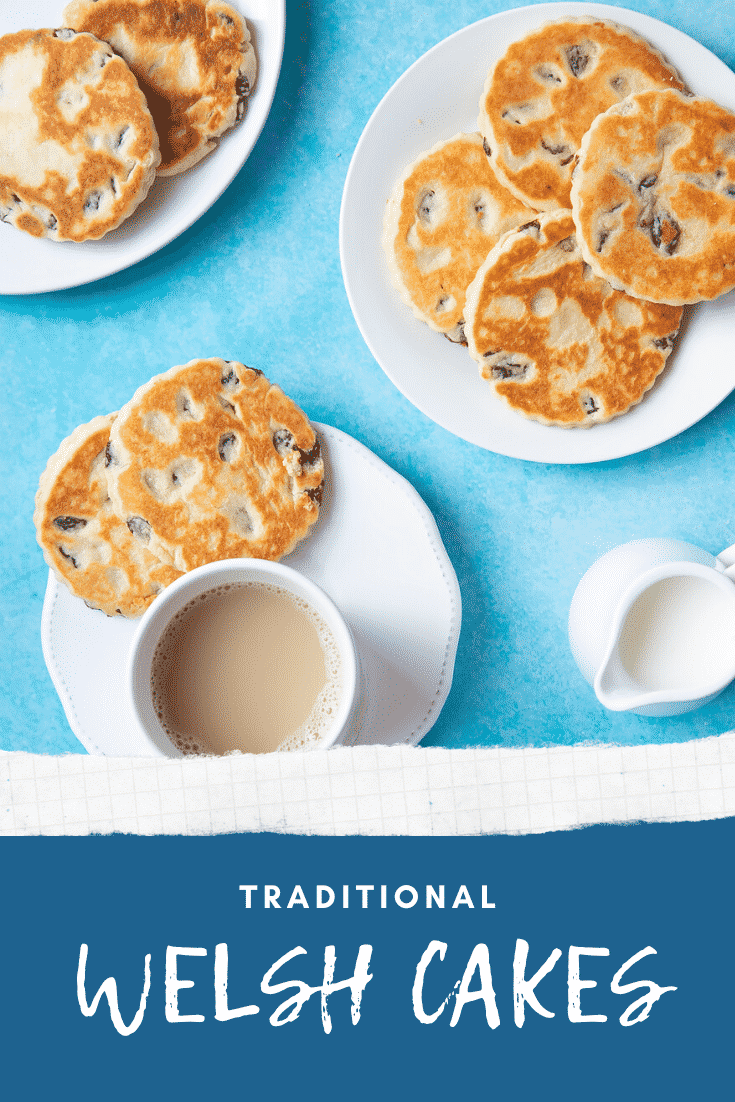
Are Welsh cakes keto-friendly?
The flour, milk and sugar in this recipe mean that it is not suitable for a keto diet.
I haven’t tried making a keto-friendly version of this recipe, but you could try replacing the flour with almond flour and replacing the sugar with coconut sugar. If the mixture needs thinning, use water instead of milk.
Sultanas are permitted in moderation on a keto diet, but dried blackberries or raspberries are even lower in carbs.
Let me know if you try it.
Is this Welsh cakes recipe healthy?
Compared to some desserts, Welsh cakes are fairly low in sugar and fat. However, it’s best to enjoy them as a treat.
Is it safe to eat Welsh cakes while pregnant?
There is nothing in this Welsh Cakes recipe that should present a risk to pregnant people if the ingredients are in good condition and have been stored correctly, and the recipe is cooked hygienically and safely.
As with all baked goods, just make absolutely sure they are cooked through.
Egg safety varies from country to country and you should always seek country-specific advice. The NHS has a great resource that will help review the latest advice regarding foods that are safe to eat while pregnant in the UK.
However, this website does not offer medical advice and you should always seek advice from your health professional.
What goes well with Welsh cakes?
These Welsh cakes are lovely straight out of the pan with a cup of tea - just allow them to cool a little so you don't burn your tongue on the sultanas!
You can have them plain, or spread with butter and jam or honey. Maple syrup could also be a nice drizzle.
As with a scone, fruit compote and clotted cream would make a luxurious topping.
Can I make this recipe without sugar? Can I use sweetener?
Yes. You could replace the sugar with the same amount of coconut sugar or xylitol. You would need to experiment to achieve a balance you're happy with.
Granulated Stevia is also a good sugar substitute in baking, however it is much sweeter than sugar, and comes in various strengths, so check your individual packet for details of quantities if you wish to replace the sugar with Stevia.
Xylitol and Stevia can be allergens, so if you are baking these Welsh cakes to share, it is important to let your guests know.
Can I add extra dried fruit to this recipe?
You can freely alter what kinds of dried fruits you use in this Welsh cakes recipe, but I would keep to 55g (2oz).
If you are using larger dried fruits like apricots or dates, cut them into very small pieces.
How should I store Welsh cakes?
It is best to store these Welsh cakes in an airtight container to keep them fresher for longer. Allow the cakes to cool completely before sealing them in the container and placing somewhere dark, dry and cool, such as a kitchen cupboard or pantry.

How long do Welsh cakes keep?
If properly cooled and placed in an airtight container, these Welsh cakes should keep for up to a week.
Can I leave Welsh cakes out on the counter?
These Welsh cakes are fine on the counter for a few hours, but will start to dry out if left out uncovered for long periods of time, so it’s best to get them into a sealed container as soon as possible once cool and place somewhere dark, dry and cool such as a kitchen cupboard or pantry.
Can I make Welsh cakes ahead?
You can make the dough up to a day in advance. Wrap tightly in cling film and store in the fridge. Don't leave the dough sitting out at room temperature.
Can I keep Welsh cakes in the refrigerator?
You don't need to refrigerate Welsh cakes. They're happier in a cool pantry.
If your kitchen is really warm, you can keep these Welsh cakes in a sealed container in the fridge if you prefer, but let them get up to room temperature before serving, as the flavour and texture will be better.
Can I freeze Welsh cakes?
Yes, Welsh freeze really well.
Make sure they are thoroughly cooled after baking, then place in an airtight container or ziplock bag for freezing.
If you are stacking the Welsh Cakes in layers, place baking parchment between each layer to stop them sticking together and aim to leave as little empty space in the container as possible as this will reduce the likelihood of freezer burn.
Properly stored, they should keep for about three months.
What is the best way to reheat Welsh cakes?
If you want to warm Welsh cakes you have stored in the pantry, you can zap them in the microwave for 15 seconds, pop them on a tray in a hot oven for 5 minutes, or even pop them in the toaster!
Be careful when reheating as the fruit can get very hot, very quickly.
What's the best way to defrost Welsh cakes from frozen?
Ideally, you should defrost your Welsh Cakes slowly overnight.
If you're in a hurry, you could also defrost in the microwave but make sure you use short bursts, at a low/defrost setting, to avoid drying them out.
You can also defrost your Welsh cakes in the toaster as long as they're free from frost. Use the reheat button if you have one as this uses a more gentle heat, giving your Welsh cakes a chance to defrost all the way through.
Be careful when defrosting as the fruit can get very hot, very quickly.
Can I make this Welsh cakes recipe in a different quantity?
If you'd like to make more or fewer Welsh cakes, no problem! Just click the portion number on the recipe card below (it will say '18' by default) and a slider should appear.
Move the slider up and down to alter the quantity. The measurements for all the ingredients will automatically change to suit the quantity chosen.
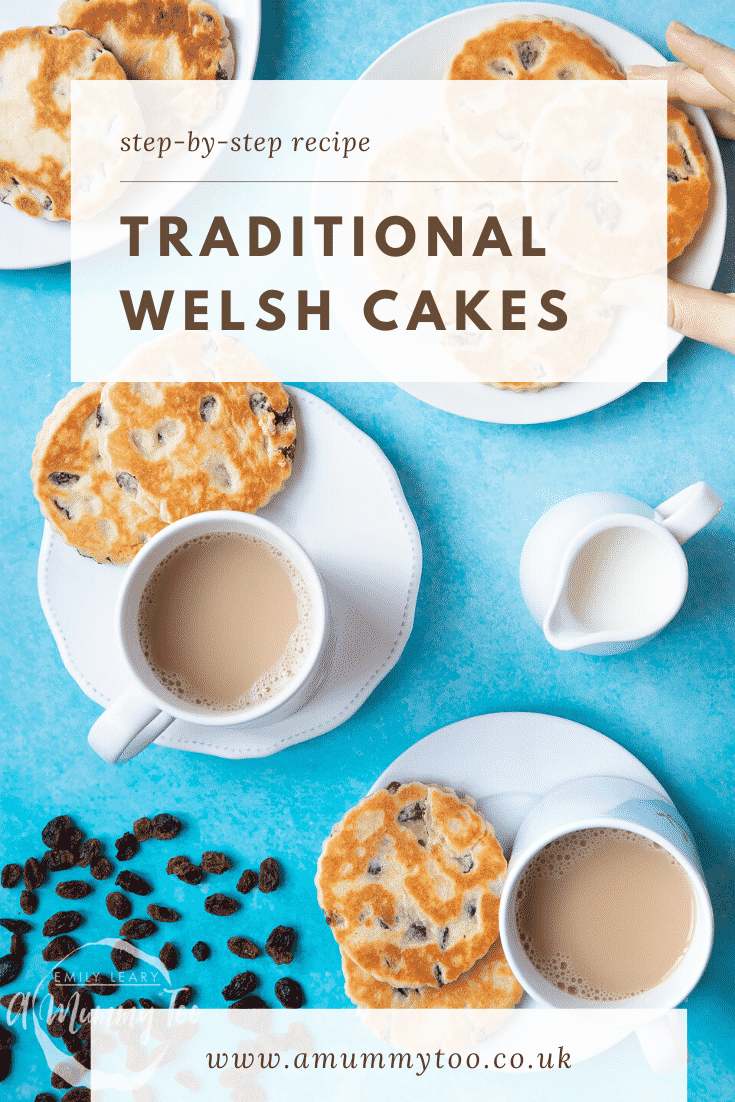
Can I make giant Welsh cakes?
I’ve never tried to make a giant Welsh Cake but I don’t see why you shouldn’t have a go!
While I think this recipe would allow for a much wider Welsh cake, I recommend still keeping the thickness about the same, otherwise they may brown on the outside while the inside is still doughy.
When it comes to cooking your Welsh cake, make sure you have a spatula large enough to flip it easily, and be really cautious about the heat: the trickiest thing about making these Welsh cakes is making sure they do not catch and burn on the dry pan, which can heat up surprisingly fast.
Can I make Welsh cakes in a stand mixer such as a KitchenAid or Kenwood Mixer?
You do not need to use a stand mixer to make Welsh Cakes. It's best done by hand so that you can rub the flour and butter together gently and then combine with the eggs and sugar delicately, without over working the dough.
Can I make Welsh cakes with a food processor?
You could use a food processor to combine the flour and butter to a crumb, but the time you save will be less time than it takes to wash the food processor up! It's usually quicker and more effective to use your hands, if you can.
Can I bake Welsh cakes?
I’ve never tried baking Welsh cakes, but my feeling is that they're cooked on a hot pan for a reason - you get a crisp outer and soft inner. I suspect that oven baking would give more of a pastry like consistency.
However, if you're keen to try using the oven, I think it would be best to start by heating a nonstick baking sheet as you preheat your oven to 200C (180C fan).
Take the sheet out of the oven, dust well with flour and carefully lay the cakes on top, spaced a little apart. Bake for 10 mins or until lightly golden. They will probably colour underneath but not on top, as they won't have direct contact with the hot surface like when pan cooked.
If you give this a go, let me know how it went!
How can I make sure my Welsh cakes are perfectly cooked?
When your Welsh Cakes are golden brown on both sides, they are cooked (about 3 mins on each side over a medium heat). If in doubt, test one - the inside should be fluffy but not doughy.
Be careful as the fruit can be extremely hot when your Welsh cakes are fresh out of the pan.
Why did my Welsh cakes turn out hard, dry or crumbly?
If your Welsh Cakes turned out hard, dry or crumbly, your mixture was probably not wet enough. Next time, add a little bit of milk so the mix is softer.
Welsh Cakes are pretty forgiving, but it’s not a great idea to cut them out and then leave them uncooked for a while: this can also be a cause of dryness and poor texture. If you do cut them out and then find you have to leave them before frying, cover with food wrap or a damp cloth.
As they cool, Welsh Cakes do get harder. Pop them in a warm oven or even microwave for ten seconds, if you want to soften them back up after they have cooled.
Why did my Welsh cakes turn out raw in the middle?
If your Welsh Cakes are raw in the middle, you did not cook them for long enough.
Dry frying can be scary because it can feel very easy to burn the cakes. If you are getting raw centres because you are struggling to avoid burning the cakes, turn the heat down considerably, and cook the cakes for longer.
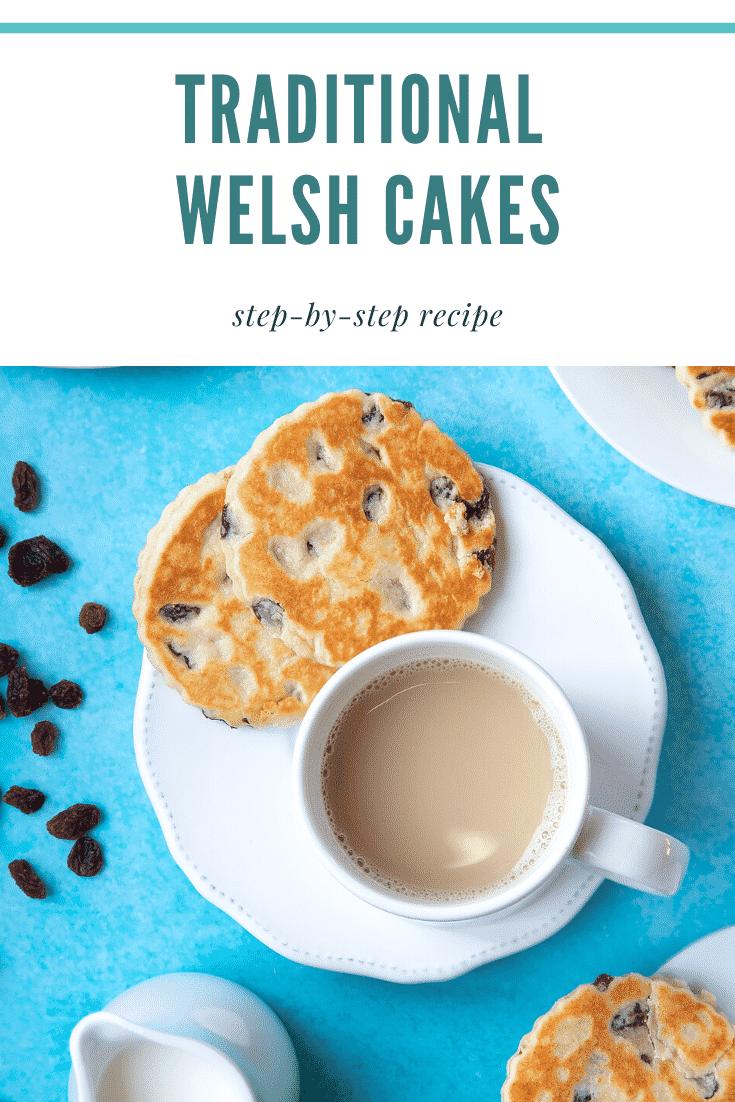
Why didn’t my Welsh cakes puff up?
Welsh cakes are not meant to rise hugely, but they should have a bit of puff from the raising agents in the self raising flour. If they are very dense, your flour may be a little old and the raising agents may have lost their potency.
Alternatively, it could be that your dough discs sat for too long before cooking, meaning they dried out and lost their natural rise.
How can I add/change the flavours in my Welsh cakes?
Welsh cakes are a traditional dish, where simple flavours work the best.
Many Welsh cake recipes include a pinch of mixed spice, and you could also add a little freshly ground nutmeg or ground cinnamon in with the flour.
It's always fun experimenting with additions, too, so you could introduce different dried fruits or candied peel to create new varieties of Welsh cake.
For a chocolatey twist on the classic Welsh cake could try adding a tablespoon of cocoa powder to the flour. You'll probably then need an extra drop of milk to keep the dough soft.
Finally, you could experiment with some flavour extracts but do so very sparingly so as not to overpower the natural flavour of the Welsh cakes.
What is the origin of Welsh cakes?
Welsh cakes - sometimes known as griddle cakes or stone cakes - originated in rural Wales, from a time when domestic ovens were rare, so people needed to find other ways to cook cakes. Traditionally, they are cooked on a baking stone, a slab of stone heated on the hob - hence their alternative name, stone cakes.
Do the Welsh call them Welsh cakes?
Indeed they do, with great pride!
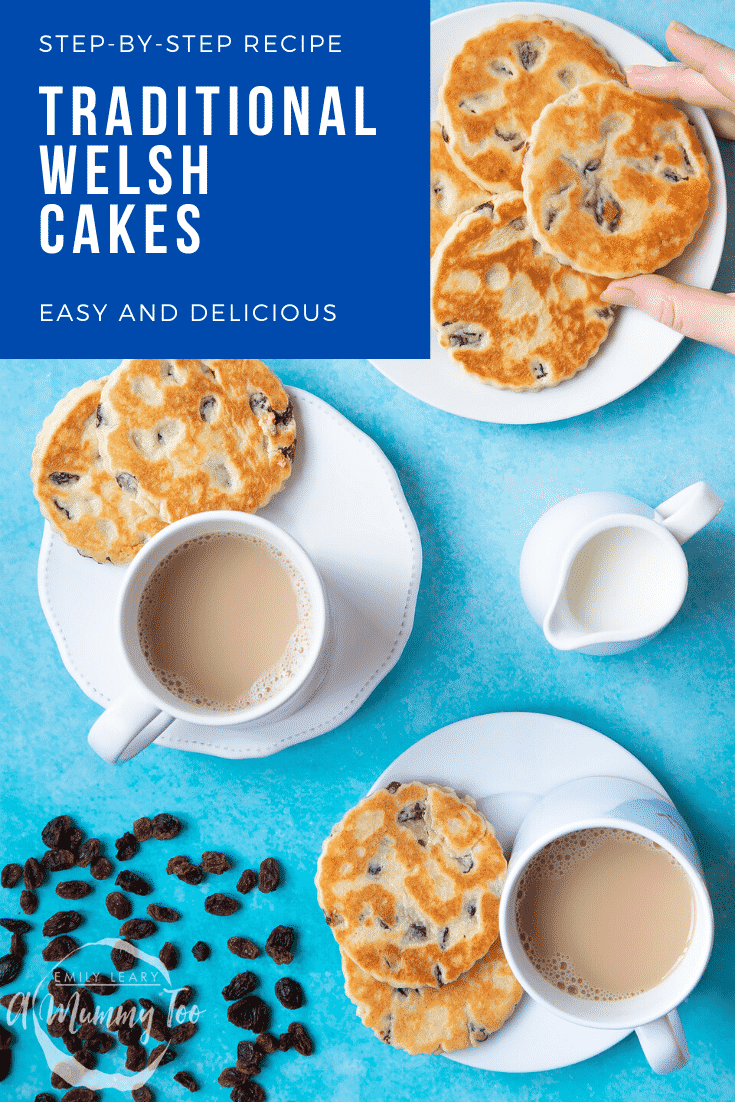
Print the recipe for these simple, delicious Welsh cakes
Simple, Delicious Welsh Cakes Recipe
Ingredients
- 225 g (1½ cups + 1 tbsp) self-raising white flour (self rising flour)
- 110 g (1 stick) salted butter cubed
- 85 g (½ cup) white caster sugar (superfine sugar)
- 1 medium free range egg
- Few drops whole milk if needed
- 55 g (⅓ cup) sultanas
Instructions
- Rub the flour and butter together until the texture is like breadcrumbs.
- Add the sugar and egg together and mix in with a fork. If you find it’s a bit dry then add a drop or two of milk
- Stir in the sultanas and bring together into a dough
- Turn out on to a floury surface and roll out to about 5mm thick
- Cut out circles using a cookie cutter – the dough should be really easy to work with
- Warm a frying pan over a medium heat.
- Cook for about 3 minutes on each side – they need to be golden brown.
Video
Notes
Nutrition
Pin these Welsh cakes for later

More tea time treats to try
Have you got my book?

'This is a great kids cookery book. Emily is a star' - Simon Rimmer
'The book I'd like to force into any mother's kitchen' - Prue Leith
"A fab book with a plan." - Jane Devonshire, 2016 Masterchef UK winner
'Emily has managed to combine her mummy knowledge and passion for food to make a truly helpful and brilliant cookbook' - Priya Tew, RD, BSc (Hons), Msc
Get Your Kids to Eat Anything is an achievable 'how to' for parents in the battle to overcome picky eating and 'make new the norm'. Emily Leary's unique 5-phase programme looks at the issue of 'fussy eating' in a holistic way that links imagination with food, and which situates parents alongside - not in opposition to - their children.


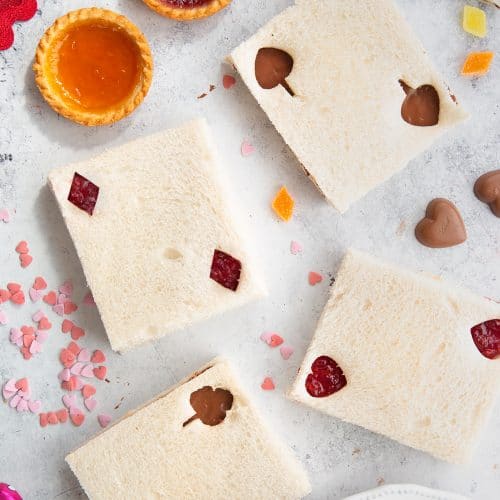
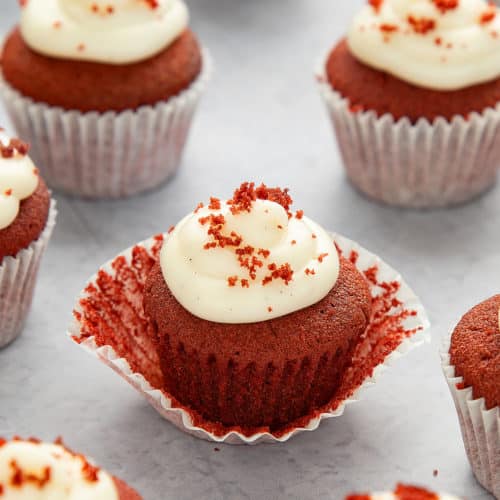
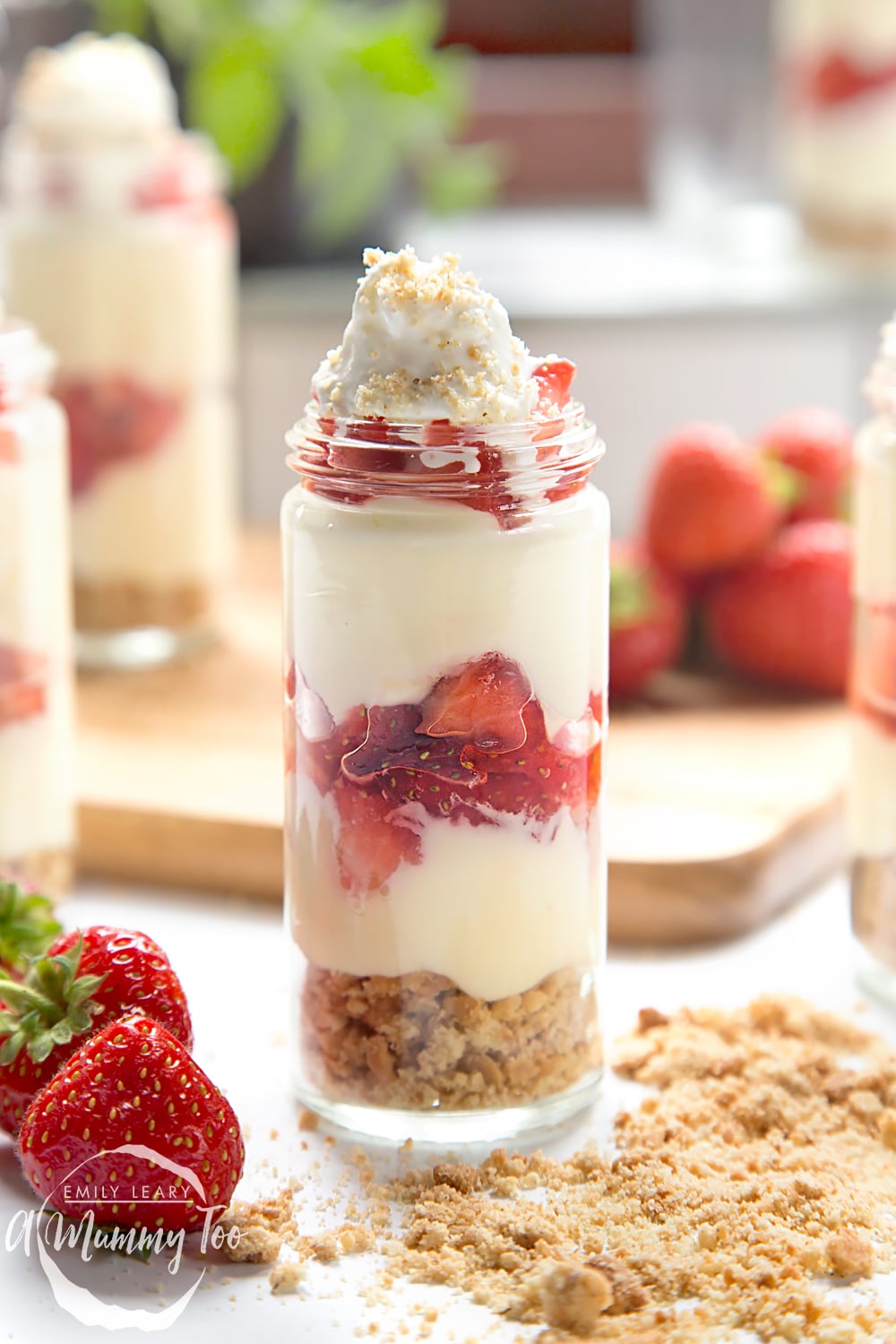
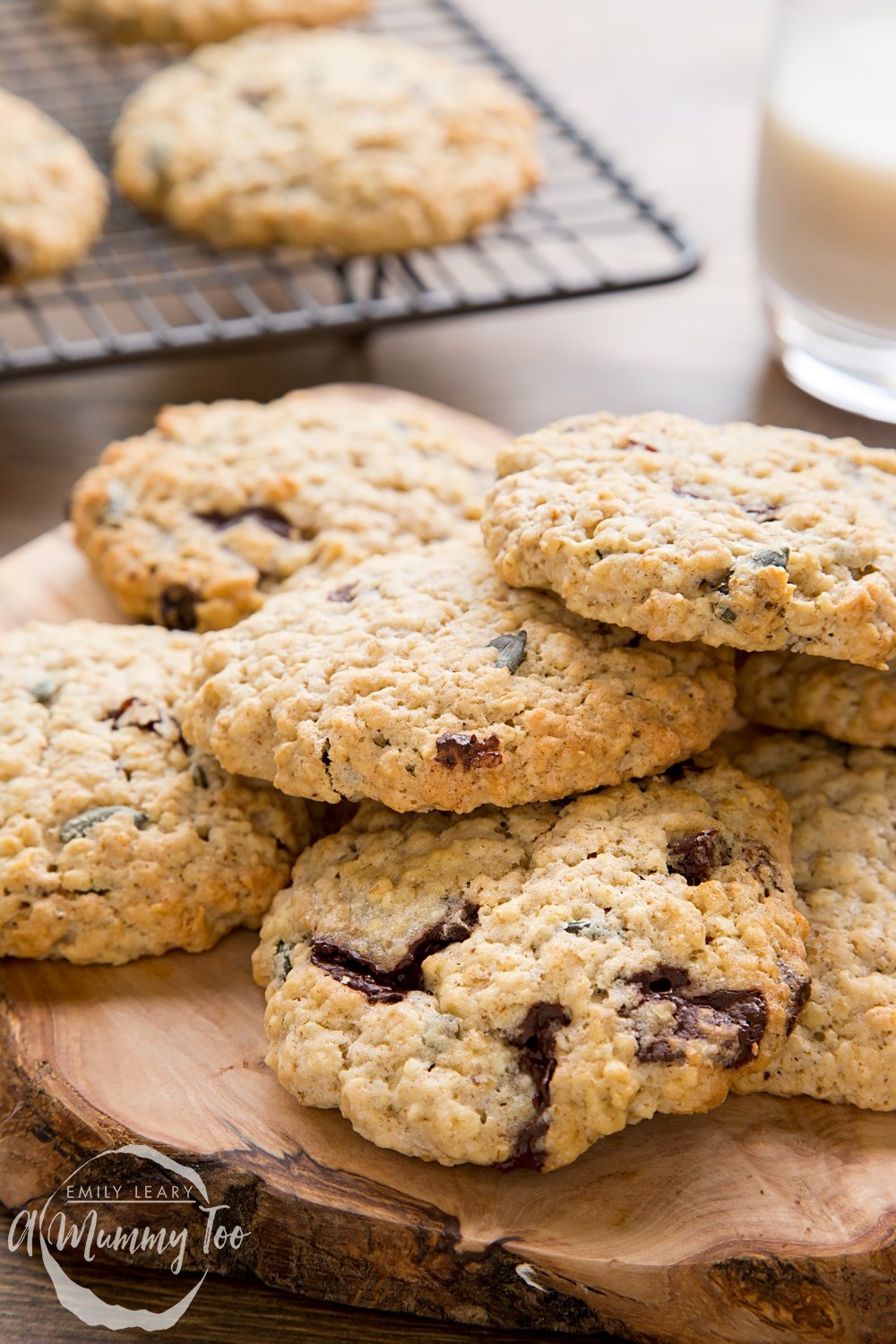
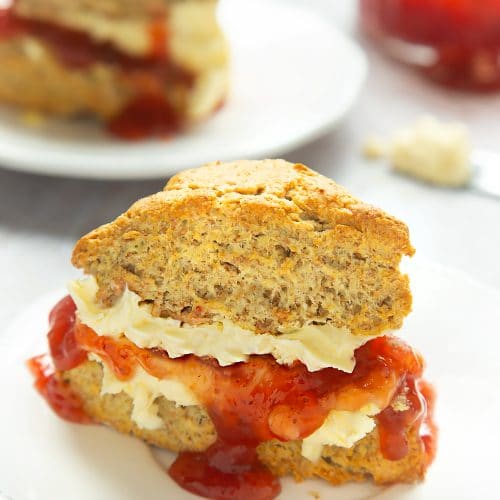
Rhiannon says
Good recipe but proper tasty Welshcakes should have a little spice in them. Usually mixed spice.
Magdalen says
In South East Wales we call them Bakestones- because they are cooked on a bakestone(if you are lucky enough to have inherited your mam’s stone. I use a flat cast iron pan.
Emily Leary says
Love this! I have a cast iron pan - I'll give it a go.
Phyllis Duncan says
Great recipe, but traditional Welsh cakes recipes ALWAYS use currants, never sultanas, to get the right taste, appearance and consistency.
Emily Leary says
It was a Welsh woman who gave me the recipe! But thank you very much that's useful to know! :)
Sian James says
Fabulous, quick, tasty recipe. I’m Welsh and this is one of the easiest welshcake recipes I have tried. I used my mother’s baking stone to make them and they were delicious. By the way, try them with chocolate chips instead of sultanas. They make a really indulgent treat.
Emily Leary says
I'm so pleased! I will definitely try them with chocolate chips - what a treat!
Amanda @gidders1 says
I've made these before with Miss A at Kiddy Cooks, they are delicious. I've a feeling we used butter milk though? I must dig the recipe out though, youve reminded me just hoe delicious they are.
Danielle Askins says
I love Welsh cakes, always great when my Welsh Grandma beings some freshly baked ones with them when they come over!
Midlife Singlemum says
Anything with sultanas is a winner with me.
Rachael says
YAY so pleased you made them and they look GORGEOUS!!!
Molly - Mother's Always Right says
Mmmmmm. I think I might make some of these at the weekend. Eaten in front of the fire - perfect Autumn afternoon treat with a cuppa. x